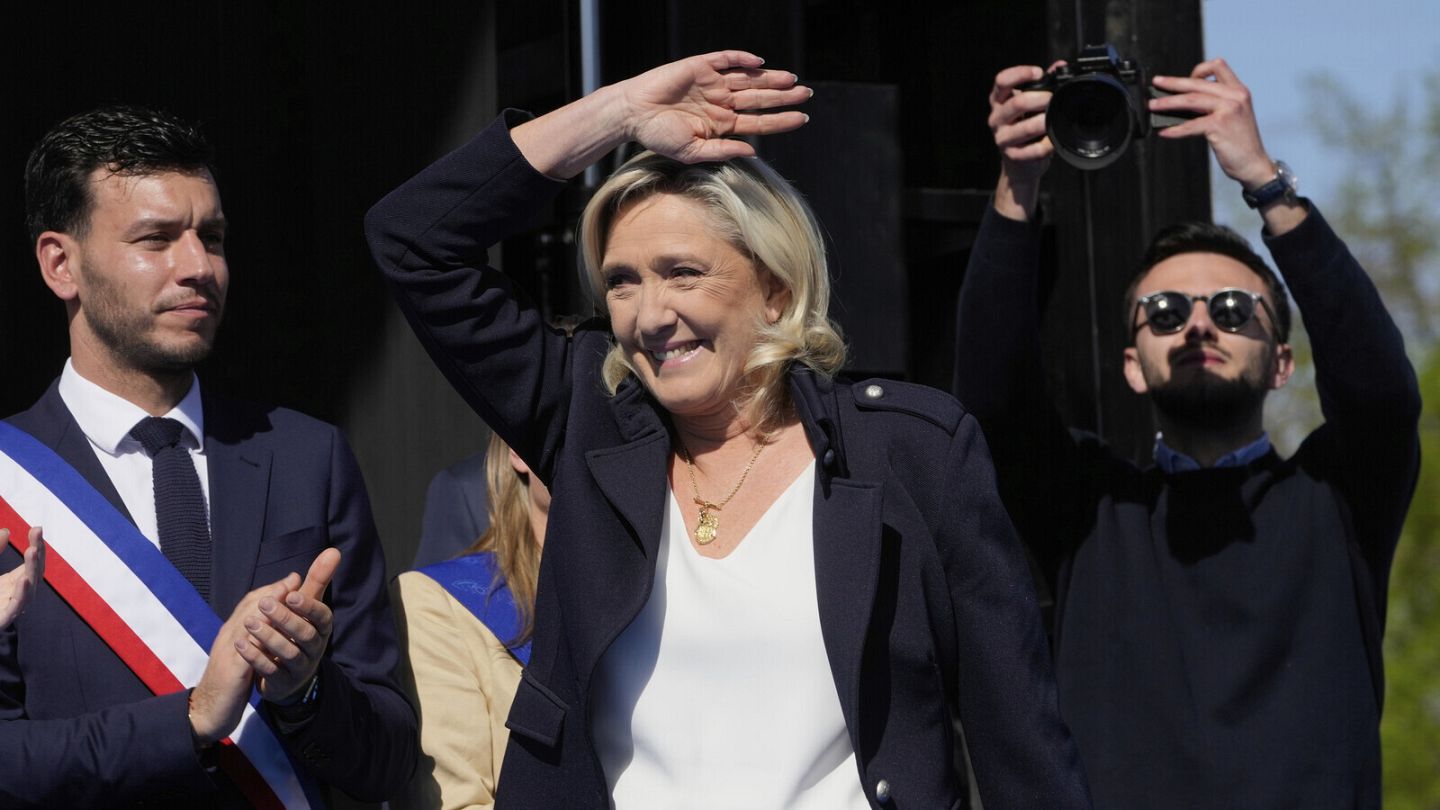Verification: Is Le Pen's disqualification from public office an unprecedented event in France and Europe?
Marine Le Pen, the leader of France's far-right National Rally (RN) party, described the court decision banning her candidacy as a "political witch hunt." Euroverify asked experts about the legal basis of her penalty.
Last month, the conviction of Marine Le Pen, the leader of France's far-right National Rally (RN) party, for embezzling EU funds and the subsequent ban on her candidacy for public office in France for five years caused a political storm. The €100,000 fine imposed on Le Pen and her four-year prison sentence were partially suspended, with two years enforced using an electronic bracelet. However, the public office ban or "disqualification penalty," which will take effect immediately despite her appeal, is not subject to suspension. This is because this part of her penalty has been "temporarily enforced" under French law. Currently, Le Pen is prohibited from running in the 2027 French presidential elections. However, an appeals court in Paris announced that it would issue a ruling by the summer of 2026 that could lead to her acquittal or a change in her sentence. The court's decision was met with skepticism from all sides of the political spectrum. Centrist Prime Minister François Bayrou stated he was "disturbed" by the decision. So, is the immediate enforcement of the ban widespread in France and Europe? Experts say that immediate disqualification from public office in France is 'rare.' Le Pen was tried under the "Sapin II" law, which was voted on in 2016 and came into effect on December 11, 2017. This law stipulates that elected officials convicted of misusing public funds are banned from public office for five years. This penalty means that Le Pen must resign from her position as a regional councilor for the Pas-de-Calais region in the north. However, her term as a member of the National Assembly for the same region will not be affected, as the French Constitutional Council is the only body authorized to end a member's term. According to data provided to Euronews by the French Ministry of Justice, 16,364 "incompatibility" penalties were issued in France in 2023. Such penalties have become more frequent in recent years: a total of 1,518 penalties were issued in 2019. In cases like Le Pen's, the proportion of penalties that are immediately enforced, temporarily or otherwise, despite an appeal is very low. Only 639 of those issued in 2023 (3.9%) took effect immediately. Jean-Baptiste Thierry, a law professor at the University of Lorraine, told Euronews, "The temporary application of the disqualification penalty imposed on Marine Le Pen is indeed a quite rare decision." Thierry explained that the application of the penalty in this way is based on "a long justification that denies the seriousness of the crime for which Marine Le Pen was convicted," adding, "It is hard to think that the judges made an exceptional decision in this case, as the facts of the case were exceptional." "They were facing a defendant who committed particularly serious acts, and they decided to show the seriousness they justified in their penalty decisions." What about other European countries? According to legal expert Guillaume Baticle, the French legal provision allowing for the immediate enforcement of Le Pen's ban is an exception in Europe. Speaking to Euronews, Baticle stated, "France is really an exception in Europe, but this situation is applicable elsewhere in the world, especially in Brazil (...) regarding the 'temporary enforcement' of a penalty." Former Brazilian President Jair Bolsonaro received a sentence in 2023 that prevents him from running for public office until 2030. Baticle added that most European countries apply the concept of "suspension of appeal," meaning the penalty is not enforced while the appeal is in progress. Can Le Pen's ban be lifted? Despite all this, if her appeal is successful and she can make it to the polls, Le Pen could run for president in 2027. The announcement from a Paris appeals court that it would decide the case by next summer keeps Le Pen's hopes alive. If the appeals court acquits Le Pen of any wrongdoing, she could enter the presidential race in time. This also means there is little pressure on her party to immediately select a backup candidate, like Jordan Bardella, the party's president. A defense attorney stated earlier this month that the timing of the appeal was a "cautious solution" designed to "alleviate the criticisms that would arise from the immediate enforcement of the decision." Such a penalty can also be wiped clean through a presidential pardon after the appeal process is fully concluded.


